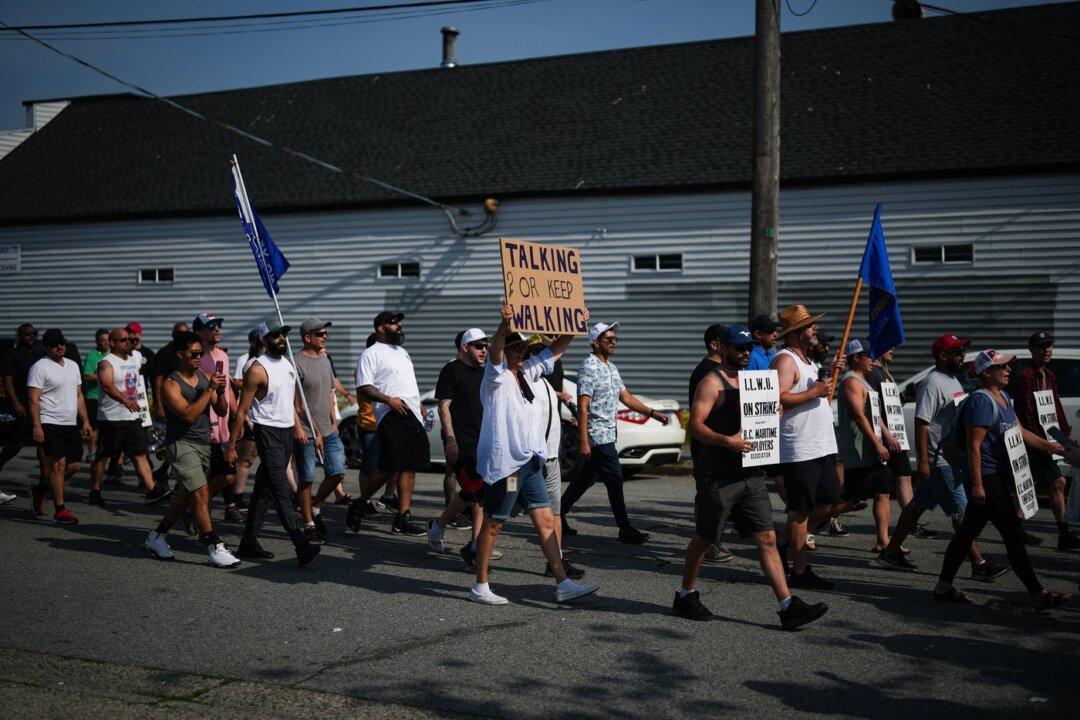Jagmeet Singh said the Trudeau government will not be getting any help from the federal New Democrat Party (NDP) in pushing through legislation to end a British Columbia port workers strike.
NDP leader Mr. Singh made the remarks on July 4 in a statement that said his party “would oppose back-to-work legislation.”
“We would decline,” he said. “The New Democratic Party is for negotiated contracts and the right of workers to strike. We call on the parties to settle the dispute at the table.”
Parliament has shut down Pacific port disputes nine times in the past 50 years using emergency legislation, according to Blacklock’s Reporter in an article on July 5.
The latest strike saw about 7,400 workers from more than 30 B.C. ports walk off the job on Canada Day, demanding improved wages and provisions against automation and contracting out.
The Port of Vancouver, Canada’s largest port, handled 141 million tonnes of cargo last year, according to its 2022 financial report, including grain, coal, potash, sulphur, and nearly 334,000 vehicles.





